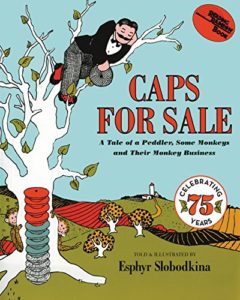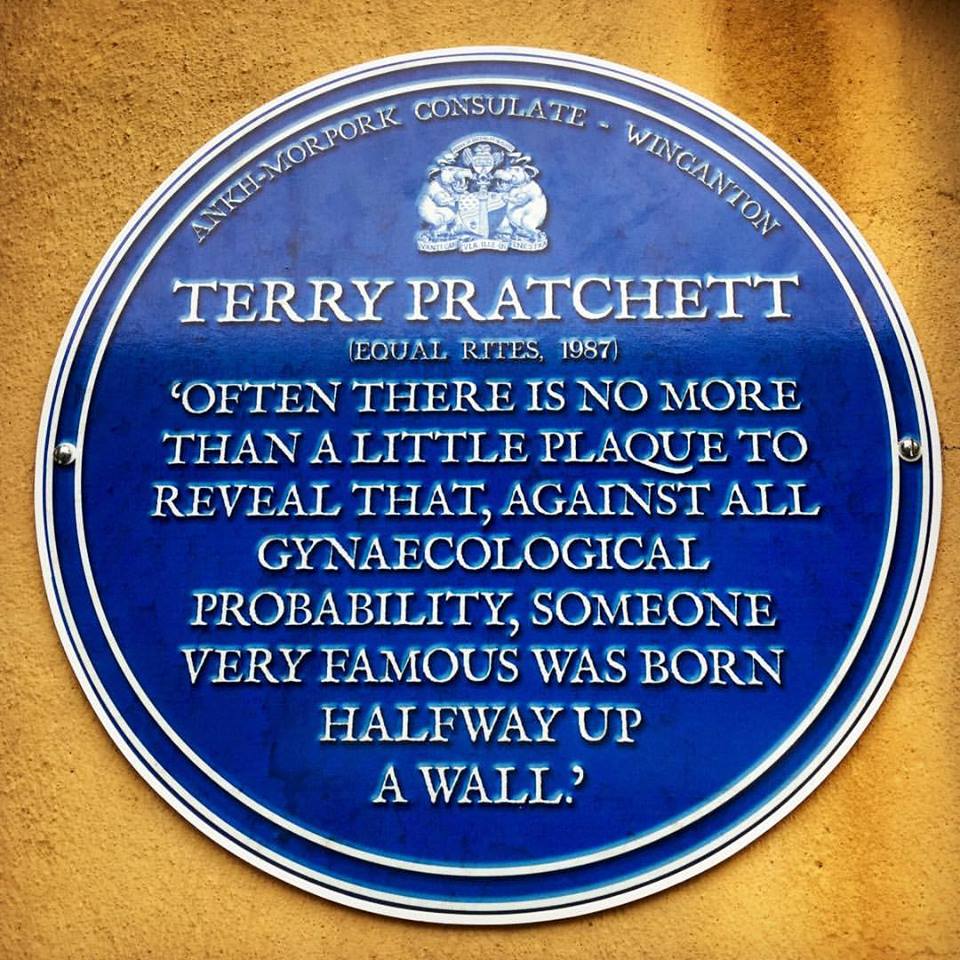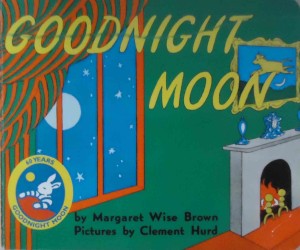(1) THE CORRELATION OF MARKET FORCES. John Z. Upjohn delivers another stinging social criticism on Alexandra Erin’s blog — “Sad Puppies Review Books: Caps For Sale”.
A head-based cap delivery service is so woefully inefficient that it is no surprise he does not sell a single cap all day. “Not even a red cap,” he laments, which suggests that he knows that red caps are best, even if he insists on wearing his ridiculous checked one. Yet they are the ones at the top of the stack, where no one can reach them. SJWs don’t believe in simple market forces like supply and demand. If he knows that red caps are the caps preferred by the majority, there’s no financial reason for him to stock anything else. It’s okay for people to like other caps, but they can’t just expect to be pandered to!
(2) THAT ROTTEN VELOUR. Esquire studies “Why Star Trek’s Uniforms Haven’t Changed Much in 50 Years”.
Remember, this was the Age of Aquarius, when bold hues reigned supreme and NBC was billing itself as the “full-color network.” You can also see nods to the costumes’ 1960s heritage in the boots’ go-go contour, especially their Cuban heels. The flared trousers even suggested the evolution of bell-bottoms.
Beyond the prevailing cultural mood, Roddenberry’s working kit entailed some heavy ergonomic thinking. “No matter how many times NASA described the outfit of the future,” he once quipped, “it always sounded like long underwear.”
“Gene’s idea was that a replicator would redo the clothes every day,” said Andrea Weaver, a Star Trek women’s costumer. “In his mind, the crew would go in and the clothes would materialize, molded to the body form.”
That form was all-important. “Roddenberry’s theory,” said Joseph D’Agosta, the casting director, “was that by the 23rd Century, diet would be down to a science and everyone would be thin.”
Unfortunately, 20th Century reality didn’t always match 23rd Century fitness. “We found ourselves having to stay away from longer shots wherever possible,” Roddenberry observed, “as the simple plain lines of our basic costume render most unflattering any extra poundage around the waist.”
(3) UNIQUE WORKSHOP. Whoever heard of a writer’s workshop that pays for you to attend? The deadline to apply for Taliesin Nexus’ Calliope Workshop for Fiction and Nonfiction Authors is August 8.
Calling the next great American author! If that’s you, then this September 9-11 get ready to have us fly you out to New York City, put you up in a hotel, and spend an entire weekend developing your work at the Calliope Authors Workshop. You will have the opportunity to get thorough notes on your in-progress work as well as career advice from successful novelists, nonfiction authors, publishers, and literary agents.
(4) A STEP IN TIME. After seeing all those movies and cartoons in which someone stands inside the giant dinosaur footprint, well, here’s one in which you really can — “Meter-wide dinosaur print, one of largest ever, found in Bolivia”.
A footprint measuring over a meter wide that was made by a meat-eating predator some 80 million years ago has been discovered in Bolivia, one of the largest of its kind ever found.
The print, which measures 1.2 meters (1.3 yards) across, probably belonged to the abelisaurus, a biped dinosaur that once roamed South America, said Argentine paleontologist Sebastian Apesteguia, who is studying the find.
(5) BRONYCON REPORT. Wesley Yiin of the Washington Post says “The grown men who love ‘My Little Pony’ aren’t who you think they are”. His article about Bronycon takes a sympathetic look at the fans.
More than half a decade into the Brony phenomenon, the grown men who love “My Little Pony” understand that the world remains curious about them. So they kicked off their recent BronyCon gathering in Baltimore with a crash course on dealing with the media, from which a couple of helpful pointers emerged:
- Don’t use jargon like “OC” or even “original character.” Simply explain that the Pony-inspired name you go by in Brony circles is, for example, “Champ Romanhoof,” the persona claimed by Chaim Freedman, a 17-year-old Brony from New Jersey.
- Do ask for their credentials. Certain publications of a conservative bent have been quick to smear Bronies. You’ll never be able to convince these kind of journalists that Bronyism is not a weird sex fetish, nor a sad childhood hang-up, but just another earnest, all-American fan community.
- Do talk up the narratives you’d like reporters to work into their stories, such as the money Bronies raise for charity. “The media,” emphasizes Jake Hughes, the leader of this seminar, “is not the enemy.”
Hughes, who goes by “Jake the Army Guy” at conventions, is a communications specialist for the Army with a stuffed Pinkie Pie toy perched on his shoulder, which perfectly complements his denim biker vest. Like many people in this room, Hughes has gotten his fair share of flak for loving a kids’ cartoon inspired by a cheesy plastic toy marketed to little girls during the Reagan administration. (Once, he says, he was quoted in a story that complained of Bronies’ body odor.)
But no one’s in a defensive crouch here. BronyCon, which attracted more than 7,600 attendees this year, is the ultimate safe space: When you’re in a rainbow wonderland of fellow travelers wearing unicorn horns and technicolor manes, randomly hollering catchphrases like “Fun! Fun! Fun!” and singing fan-written songs with titles like “Mane Squeeze,” you can stop worrying about what’s normal and what’s weird or where you fit in.
(6) ANTICIPATING THE 1961 HUGOS. Galactic Journey’s Gideon Marcus is bracing himself for disappointment, in “[July 27, 1961] Breaking A Winning Streak (August 1961 Fantasy and Science Fiction)”.
Take a look at the back cover of this month’s Fantasy and Science Fiction. There’s the usual array of highbrows with smug faces letting you know that they wouldn’t settle for a lesser sci-fi mag. And next to them is the Hugo award that the magazine won last year at Pittsburgh’s WorldCon. That’s the third Hugo in a row.
It may well be their last.
I used to love this little yellow magazine. Sure, it’s the shortest of the Big Three (including Analog and Galaxy), but in the past, it boasted the highest quality stories. I voted it best magazine for 1959 and 1960.
F&SF has seen a steady decline over the past year, however, and the last three issues have been particularly bad. Take a look at what the August 1961 issue offers us….
(7) DEBUT REVIEWED. Paul Di Filippo reviews David D. Levine’s Arabella of Mars at Locus Online.
This seems to be a “steam engine time” kind of period in publishing, when writers who have focused exclusively on short fiction for many years now step forth with their long-anticipated debut novels….
(8) LITIGATION. Slender Man is an online fiction creation. Two Wisconsin girls, age 12 at the time, allegedly attempted to kill their classmate to please this character. They have lost their appeal to be tried as juveniles rather than adults.
Anyone 10 or older charged with first-degree attempted homicide is automatically considered an adult under Wisconsin law. But defense attorneys have argued that the case belongs in juvenile court, saying the adolescents suffer from mental illness and won’t get the treatment they need in the adult prison system.
Experts testified that one of the girls has schizophrenia and an oppositional defiant disorder that requires long-term mental health treatment. The other girl has been diagnosed with a delusional disorder and a condition known as schizotypy, which a psychologist testified made her vulnerable to believing in Slender Man.
In a pair of rulings Wednesday, the 2nd District Appeals court affirmed a lower court’s determination that it was reasonable to try both girls as adults. Citing the ruling last year, the appeals court said if the girls were found guilty in the juvenile system they would be released at age 18 with no supervision or mental health treatment.
It also noted that the evidence showed the crime was not accidental or impulsive, but planned out and violent. Given the serious nature of the offense, it would not be appropriate for the trial to take place in juvenile court, the appeals court ruled…..
According to a criminal complaint, the girls plotted for months before they lured Payton Leutner into a park in Waukesha, about 20 miles west of Milwaukee, and attacked her with a knife.
Leutner suffered 19 stab wounds, including one that doctors say narrowly missed a major artery near her heart. After the attack in a wooded park, she crawled to a road and was found lying on a sidewalk by a passing bicyclist. Despite the attack, she staged what her family called a “miraculous” recovery and was back in school in September three months later.
The girls told investigators they hoped that killing her would please Slender Man, a demon-like character they had read about in online horror stories. The tales describe Slender Man as an unnaturally thin, faceless creature who preys on children.
(9) LIEBMANN OBIT. SF Site News reports filker Michael Liebmann died on July 26. Liebmann founded GAFilk in 1999. More information at the link.
(10) JACK DAVIS OBIT. Artist Jack Davis (1924-2016) died July 27 at the age of 91. I knew him from MAD Magazine, though he was even better known for his movie posters, advertising art, and work in mainstream magazines.
Mark Evanier wrote an excellent appreciation of Davis at News From Me.
One of America’s all-time great cartoonists has left us at the age of 91. Jack Davis made his initial fame in EC Comics like Tales from the Crypt and MAD but went on to become one of the most visible (and imitated) creators of advertising, movie posters and record album covers ever. His ability to make anything funnier when he drew it and his keen eye for caricatures could be seen darn near everywhere in this country for well more than half a century.
(11) ANOTHER BALLOT SHARED. H.P. at Every Day Should Be Tuesday revealed his “2016 Hugo Awards Ballot”.
I didn’t wind up reading a lot of the nominees and blogged about even fewer, but I at least wanted to get my votes up. To be honest, I’ve lost a certain amount of interest in the Hugos. And despite the big, big nomination numbers, the Hugos don’t seem to be getting nearly as much attention this year in general. It will be interesting to see if that is reflected in the voting….
How could someone who voted Jeffro Johnson first in three Hugo categories ever weary of the fun?
(12) GRAPHIC DETAILS. Eric Franklin at Game Thyme not only shared part of his ballot, but his fascinating process for ranking the nominees in “Hugo Awards: Done Voting”.
I read as much as I could of the others. I looked at the art nominees.
And then I grabbed an excel spreadsheet and rated everything based on a +10 to -10 scale of “Good” and “Fun.” I plotted that on a graph, and figured out where my “No Award” point was – it’s equivalent to 0 Good, 0 Fun. Anything with a score worse than that scored below No Award.
I also weighted the spreadsheet in favor of Good. So a Good 5, Fun 0 work will have a better score than a Good 0, Fun 5 work.
Remember that this is zero average. Mediocre scores for good and fun are the +2 / -2 range. 3-5 is good, 6+ is great. -3 to -5 is bad. -6 and less is awful.
Then I fed it to a formula to determine the distance from 10,10, as if it were a triangle and I was calculating the hypotenuse. So low numbers were good, high numbers bad.
0, 0 in my spreadsheet, BTW, comes to a final score of 11.53, so anything above that level was out.
I’m going to discuss two categories, tell you how I voted, and discuss each nominee in that category. I’m going to discuss Best Novel and Best Dramatic Presentation: Long Form.
And yes, I know. I crazy-overthought this.
(13) JOURNEY’S END. Kate Paulk reaches the John W. Campbell Award and the Retro-Hugos in the culmination of her series for Mad Genius Club, “Hugo Finalist Highlights – The Retros and the Campbell Award Finalists”.
Brian Niemeier – DAMN YOU BRIAN NIEMEIER! Okay. Now I’ve got that out of my system. I couldn’t stop reading Nethereal. The combination of fantasy styling over science fiction with an intricate layered plot and remarkably human characters sucked me in and refused to let go. Of note: Niemeier is the only finalist in his first year of Campbell eligibility.
(14) UK GAMING CON FOLDS. Conception is a role playing game convention on the south coast of England. Held every year since 2000 it has raised over £150,000 for charity. There won’t be another.
It is with great sadness and regret that we must announce that the CONCEPTION Committee have unanimously decided to call it day.
There will no longer be a CONCEPTION 2017.
We have decided that after 17 years of hosting events at Hoburne Naish that we would rather end it on the virtual miracle that was this years event and retain the wonderful memories of CONCEPTIONs Past.
This choice was not an easy one for us to make. We have invested a considerable amount of time and effort on something that proved extraordinarily hard for us to let go. We emerged from CONCEPTION 2016 with some doubts and concerns about the future but also a renewed vigour for the challenges set by the new management. We were still optimistic that we could weather this re-structuring and re-development at Hoburne Holidays and still reliably host a convention in 2017.
However, recently even more changes have been forced upon us by Hoburne Holidays which severely limit the quantity of accommodation to a point where we cannot with any great certainly be assured that we can host the event in the same manner as we have in the past without badly tarnishing the experience for all our attendees.
So, rather than be forced to accept the uncertainty of dealing with Hoburne Holidays in the future or struggling to hurriedly find and negotiate terms with an alternative economically/ergonomically viable venue we decided to permanently discontinue the event.
[Via Ansible Links.]
(15) WORLDCON PREVIEW. One artist shares how his work is getting to the con.
*New* This frosty beastie will make its debut at the 74th Worldcon Art Show in Kansas City, Missouri August 17-21 pic.twitter.com/BdRRVZSQQW
— MonsterhedZ (@MonsterhedZ) July 27, 2016
The only way to ship a mounted Ice Dragon pic.twitter.com/yPsUR6Vu36
— MonsterhedZ (@MonsterhedZ) July 27, 2016
(16) THE BAD NEWS. Unfortunately, Sharon Lee and Steve Miller won’t be making it to MACII.
Steve and I are very sorry, indeed, to announce that we will NOT be attending the 74th World Science Fiction Convention, MidAmeriCon II, to be held in Kansas City, August 17-21.
A direct casualty of this is the signing we were to do at the Bradley Fair Barnes and Noble, in Wichita, Kansas, on August 14.
We apologize to everyone who thought they’d have a chance to meet us, or to renew our acquaintance. And we especially apologize for the lateness of the hour. Up until this past Saturday, we were certain that we’d be attending.
So, here’s what we’d like you to do — go to the con, and have a terrific time. Raise a glass of whatever it is you’re having, and share the toast with friends: “To Plan B!” which is our own most-used salute. Drop us a note, if you can, and tell us about the con. We’d like that.
(17) TODAY’S BIRTHDAY RABBIT
- July 27, 1940 — Bugs Bunny made his cartoon debut.
(18) GREEN HARVEST. This is the kind of hard-hitting journalism you’ve been looking for. Fox News headlined this story “Sexy cosplayers can make $200,000 a year at comic book conventions”.
Scores of attractive women made their way to Comic Con in San Diego, Calif. last week to don skimpy cosplay outfits to entertain the convention’s superhero fans. Many do it just for fun, but for some it’s a job that pays well into the six figures.
“In addition to a per diem and travel costs, popular professional cosplayers can make at least $5,000 to $10,000 a show,” comic book expert Christian Beranek told FOX411. “If you add in mail order sales, crowd funding contributions and YouTube ad revenue, the top talents are pulling in close to $200,000 a year.”
(19) SAME BAT-TIME. Amazon would be delighted to sell you The Ultimate Batman 75th Year Limited Edition Watch Set.
- DC Comics super hero are depicted from four eras of comic book history in the square-shaped watches.
- In addition, there are four incarnations of the Bat-Signal depicted in the round-shaped Swatch-like minimalist watches. The watches from left to right as presented in the box; watches 1 and 2 of the set features Batman with his fists clenched. This muscular, determined Caped Crusader has spent the Modern Age of Comics defending Gotham City from its most notorious villains.
- Watches 3 and 4 displays Batman dramatically staring up at the Bat-Signal. By the Bronze Age of Comics, artists had encased the super hero’s spare black bat emblem with a yellow oval. The insignia became the crime fighter’s trademark. Watches 5 and 6 then shows Batman swooping into the frame with his cape flying behind him. The image, from the Silver Age of Comics, accentuates the super hero’s signature glowing white eyes and utility belt.
- Lastly, watches 7 and 8, highlights Batman as first envisioned by creator Bob Kane during the Golden Age of Comics. The super hero’s black cape and cowl and gray suit formed his iconic visual identity.
(20) KILLING JOKE IS DOA. At Forbes, Scott Mendelson passes judgment: “’Batman: The Killing Joke’ Review: The Controversial Comic Is Now A Terrible Movie”.
Final paragraph:
We may not have gotten the Killing Joke adaptation that we wanted, but we may well have gotten the one we deserved.
(21) BIG PLANS. George R.R. Martin tells how he will celebrate the third anniversary of his theater.
Hard to believe, but we are coming up on the third anniversary of the re-opening of the Jean Cocteau Cinema. Santa Fe’s hometown movie theatre, and first art house, had been dark for seven years when we turned on the lights again and opened the doors in August 2013. Needless to say, that calls for a celebration… a week-long celebration, in fact!!!
(22) DIRECTOR’S TOUR. Tim Burton takes us inside the peculiar world of Miss Peregrine’s Home for Peculiar Children.
[Thanks to JJ, David K.M. Klaus, Dawn Incognito, Martin Morse Wooster, Carl Slaughter, and John King Tarpinian for some of these stories. Title credit goes to File 770 contributing editor of the day Gregory N. Hullender.]













